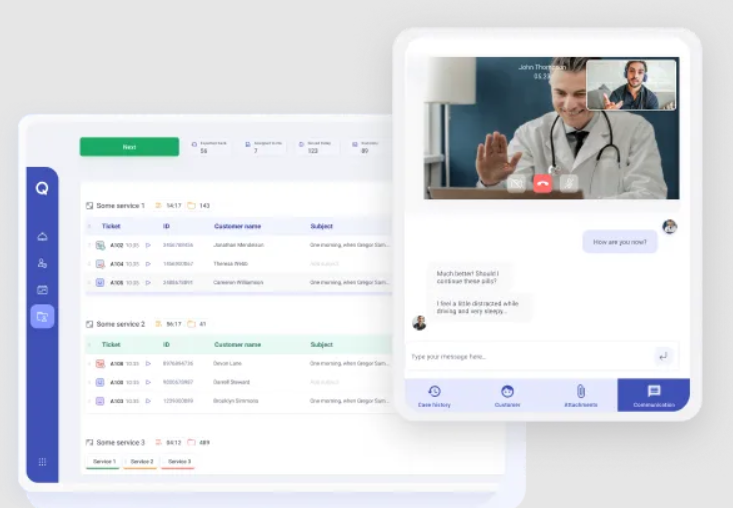Why Every Business Needs a Better Way to Book Meetings

Photo by MART PRODUCTION from Pexels
Meetings fuel every business. Without meetings, it’s impossible to move projects forward. How do you close deals and keep teams aligned? Too many emails. Last-minute changes. Double booking. Inefficient meeting scheduling creates barriers to your efficiency. Moving any project forward feels like a never-ending struggle. A simple task turns into a time-consuming mess.
The global scheduling software market size instantly grows and is projected to grow from USD 546.1 million in 2025 to USD 1,518.4 million by 2032. In this blog, we’ll discuss why traditional meeting scheduling systems are ineffective, how smarter tools like online meeting software can boost productivity. And why automated reminders are key to preventing time wastage.
Current Challenges in Meeting Booking
At first glance, getting a meeting on the calendar should be easy. But the reality looks different. What seems like such a simple process is frustrating and full of obstacles that can be avoided. Scheduling conflicts make the process feel chaotic. Here’s why.
You've probably tried to gather friends: one person offers a time, and another can't make it. The cycle repeats itself ad infinitum. When multiple teams, clients, or external partners get involved, things slow down even more.
Emails pile up. Sales teams lose valuable time. Managers spend hours coordinating instead of leading.

Photo by Diva Plavalaguna from Pexels
Time zones create further confusion. The most usual time zone management challenges - a meeting set for 3 PM might work for someone in New York but not for a team in London. Even with digital calendars, mistakes happen.
Unclear agendas are the next challenge. A lack of a clear and organized structure creates misunderstandings. Some people arrive expecting a strategy session. Others think it’s a quick check-in. Misaligned expectations lead to wasted time and frustration.
This inefficiency has consequences for any organization. Sales teams waste time, managers spend time planning instead of managing processes, and employees are distracted and frustrated. Every poorly organized or missed meeting is a potential lost opportunity.
The Impact of Inefficient Meeting Scheduling
Every unnecessary minute spent on scheduling is wasted time. And that means inefficient meeting booking systems slow down business and lost productivity. According to a Harvard Business Review survey of 182 senior managers across various industries, 62% of respondents said meetings are wasted team-building opportunities. The culprit is poor scheduling, which adds no value to many of the meetings that take place.
Employee disengagement frustration builds up. Constant rescheduling, unclear agendas, and last-minute cancellations wear teams down. Work feels disorganized when meetings become a hassle and engagement drops.
Clients feel the impact, too. A slow scheduling process makes businesses look disorganized. Delays in setting up sales calls or support meetings frustrate customers.
Revenue takes a hit. Missed meetings mean missed opportunities. Deals stall. Potential customers move on. Existing clients feel neglected. Every scheduling inefficiency is another crack in the foundation of your business.
The Benefits of an Improved Meeting Booking System

Image source: qnomy.com
Fixing the way meetings are booked and investing in a smarter meeting booking system makes everything run more consistently. It changes how teams communicate and how decisions are made.
Meetings become purposeful, not routine tasks. Too often, people show up unprepared because a meeting was scheduled at the last minute or without a plan or expectations. With structured booking, teams plan, gather the right information, and come ready to contribute. Every meeting serves a purpose rather than becoming just another item on the calendar.
As a bonus, work-life balance improves when meetings are not a clutter and you can plan your time. When scheduling is unpredictable, people struggle to organize their day. Last-minute invites force them to drop what they’re doing, creating stress and inefficiency. A smarter system ensures meetings fit into schedules, not the other way around. Employees have more control over their time, which leads to fewer late arrivals and less burnout for the entire team as a result.
When coordination is effortless, staff and external partners stay aligned, projects move faster, and business relationships strengthen.
What Makes a Better Meeting Booking System
An online scheduling software like qnomy.com does more than just book meetings. It eliminates unnecessary steps, prevents scheduling conflicts, and improves efficiency.
- Automated scheduling – AI suggests the best times based on past availability. No emails are needed.
- Self-booking options – Clients and employees pick available slots on their own. No waiting.
- Calendar integration – Syncs with Google, Outlook, or other systems to avoid conflicts.
- Time zone intelligence – Automatically adjusts for global teams and partners.
- Automated reminders – Notifications ensure no one forgets the meeting.
- Meeting insights – Tracks meeting patterns to cut unnecessary calls.
Real-World Examples of Businesses Benefiting from Better Scheduling
Booking a meeting shouldn’t feel harder than closing a deal. These businesses ditched endless email chains and manual coordination, unlocking massive productivity gains with smarter scheduling.
Clalit Health Services increased daily video appointments to 1,500+
With five million insured members, Clalit needed a scalable, secure video consultation system. Q-Flow Video Appointment Management expanded virtual care to over 1,200 healthcare services, reduced administrative strain, and allowed doctors to take appointments from anywhere. Demand for virtual visits remained high post-pandemic due to improved accessibility.
Orange Telecom reduced customer wait times and improved service efficiency
As Orange expanded globally, managing service center efficiency became a major challenge. Many locations relied on outdated queue management systems, making data collection difficult and limiting enterprise-wide insights. After implementing Q-Flow, Orange gained real-time service tracking and enterprise reporting.
In Conclusion
Meetings should move business forward, not slow it down. Poor meeting scheduling wastes time, drains employee productivity, and frustrates employees and clients. The right online scheduling software means fewer headaches and more results. Cloud-based software minimizes the initial investment required for implementation. But it is the topic to anoser discussion. As well as the integration of AI technologies.
Have you found a scheduling system that works? Tell us your thoughts!
Check out how to simplify scheduling with Q-nomy. With smart automation, real-time availability tracking, and easy integration, managing meeting appointments is a breeze.
Copyright © . All Rights Reserved